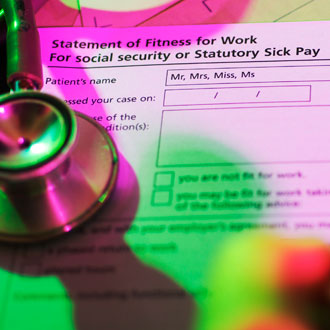Mental health conditions account for close to a third of all fit notes issued, according to new data extracted by NHS Digital from GP practices.
In all, 31% of fit notes written in England between December 2014 and March 2017 gave mental health as a reason, making it the most common condition for issuing the notes where a reason was known. A fifth of those fit notes were issued for a period of absence of more than 12 weeks.
Stress and anxiety was one of the biggest causes of fit notes issued for mental health reasons. The number of fit notes known to have been written for anxiety and stress-related conditions from included practices increased by around 14% from 503,000 in 2015/16 to 573,000 in 2016/17.
Musculoskeletal conditions were the second most common reason given for issuing fit notes.
Women accounted for more than half of the total number of fit notes issued in the reporting period, from a low of 53.8% in August 2015 to a high of 57.8% in January 2017, according to the experimental report.
NHS Digital said that this was the first time that anonymised data covering GP practices has been collected for the first time.
These practices are responsible for around two-thirds of working age patients registered with a GP in England.
The fit note – or Medical Statement of Fitness to Work – was introduced in 2010 in response to the Black report on ill health among working age people, so GPs could give advice how a patient might return to work depending on workplace adjustments and support, rather than simply stating they were too sick to work.
Manufacturing bosses previously blamed GPs for the failure of fit notes to help people back into work earlier and called for them to have better training in the fit note process.
The Government said last year that it would look at plans to allow non-GPs to sign off fit notes, amid a wider review of the Fitness to Work scheme.
NHS Digital said other findings in the data included:
Pulse October survey
Take our July 2025 survey to potentially win £1.000 worth of tokens














